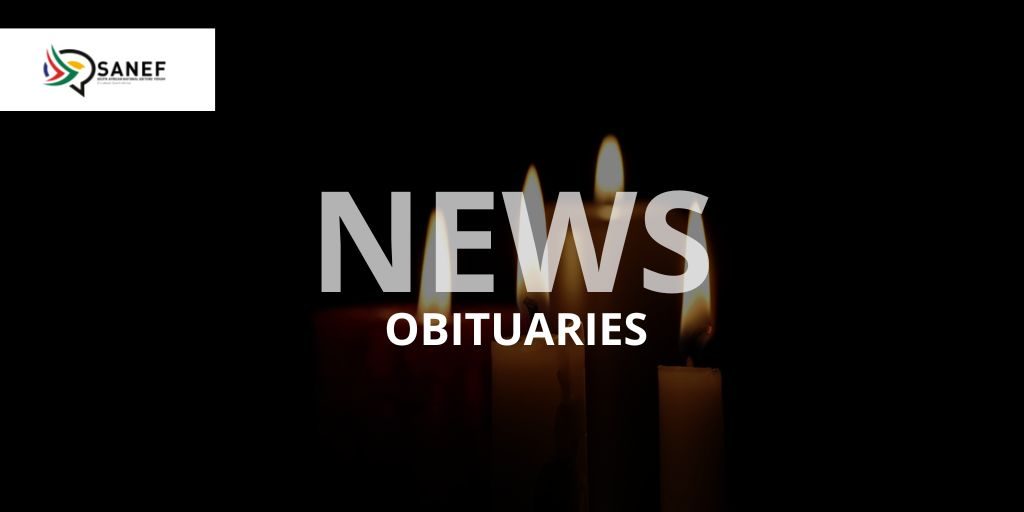Sanef calls for an end to cyberbullying of women journalists on this International Women’s Day
On 08 March 2024, the South African National Editors’ Forum (SANEF) condemns the repeated targeting of female journalists on social media and other platforms. Technology-assisted Gender-Based Violence (GBV), otherwise known as cyberbullying or cyber harassment is on the rise in South Africa, with women as the main targets.
Women in media, politics and any public-facing profession are most at risk with 49% of women journalists experiencing some form of online abuse through hateful language at some point in their career.
The state of cyberbullying in South Africa is alarming, with women journalists having to be moved because of threats. Social media platforms, messaging apps and discussion sites are used to spread hate and misogyny against women journalists by perpetrators hiding behind anonymous accounts.
Content that expresses hate against women and girls is now shared beyond national borders in the ‘Manosphere’ and the male ‘Incel’ community which expands the range of unsafe spaces for women. This is concerning because the digital space is often lauded for its ability to allow for self-expression to all, regardless of status and identity.
However, the digital space is now replicating the real world and is increasingly unsafe for women as it has become a breeding ground for a range of exclusionary and violent discourses and beliefs, expressed and disseminated in a context of anonymity and impunity.
Cyberbullying joins an already long list of women’s struggles in the media. Despite women journalists contributing a lot to the media industry, from reporting from the front lines of warzones to ensuring citizens are kept informed this year – where over 60 countries will hold elections – they are still not safe from harm. They face bullying and sexual harassment in the workplace from bosses, peers, and employees who report to them and interview subjects which makes it difficult for them to do their job effectively. Women are still fighting to be paid the same as their peers with gender pay gaps increasing globally.
Women are regularly passed over for promotion in preference of their male peers. This has added to the increasing underrepresentation of women in decision-making roles in newsrooms and beyond. The exclusion from leadership positions in media means women’s voices, the majority in the SA population, are missing which has a negative impact on how women’s stories are covered and the kinds of narratives around gender and gender inequality that make it onto the front pages. Even when women do have senior positions, they are often not allowed to make decisions which further dilutes their ability to contribute to gender advocacy narratives.
South Africa was initially leading in women’s representation in the newsroom but has recently been found to be regressing. Reuters Institute research found that in 2020 South Africa had 60% women in leadership in media, while in 2024 the number has dropped to 20%.
Legal journalist, Karyn Maughn, is one of the women journalists who has experienced numerous incidents of real-world and cyber harassment in South Africa. Most recently, she was attacked in a purported “opinion piece” published in the Sunday Independent. The piece went beyond a publication giving a platform to someone to air their views but was a malicious and violent attack on Maughn for simply doing her job as a journalist. The accompanying picture/graphic on the article had a gun pointed at her image, which was a clear indication of its intention to incite violence against her.
Incitement of violence violates the press code and should be taken seriously by all concerned about media freedom. External opinion needs to be based on fact and not be malicious or breach the press code.
This International Women’s Day, we are further outraged by the long-suffering of journalists, particularly female journalists in Gaza. For five months, journalists have been subjected to harsh, unthinkable conditions as they seek to tell the story of the war they are living through.
Note to Editors:
The South African National Editors’ Forum (SANEF) is a non-profit organisation whose members are editors, senior journalists, and journalism trainers from all areas of South African media. We are committed to championing South Africa’s hard-won freedom of expression and promoting quality, ethics, and diversity in the South African media. We promote excellence in journalism through fighting for media freedom, writing policy submissions, research, and education and training programmes. SANEF is not a union.
For more information please contact:
- Sbu Ngalwa – SANEF Chairperson (073) 404-1415
- Nwabisa Makunga – SANEF Deputy Chairperson (082) 555-1972
- Prof Glenda Daniels – SANEF Secretary-General (083) 229-9708
- Tshamano Makhadi – Treasurer-General (082) 223 0621
- Makhudu Sefara – SANEF Media Freedom Chair (079) 177-2134
- Katy Katopodis – SANEF Wellness and Safety Chair (082) 805-7022
- Judy Sandison – SANEF KZN Convenor (082) 571-3334
- Heather Robertson – SANEF Gauteng Convenor (083) 3085618
- Rochelle De Kock – SANEF Eastern Cape Convenor (072) 969-8028
- Asanda Ngoasheng – SANEF Western Cape Convenor (082) 610 9374
- Reggy Moalusi – SANEF Executive Director (071) 682-3695



